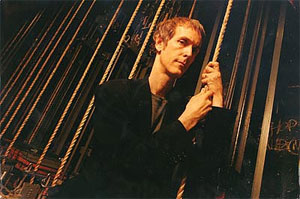by Daniel Hathaway
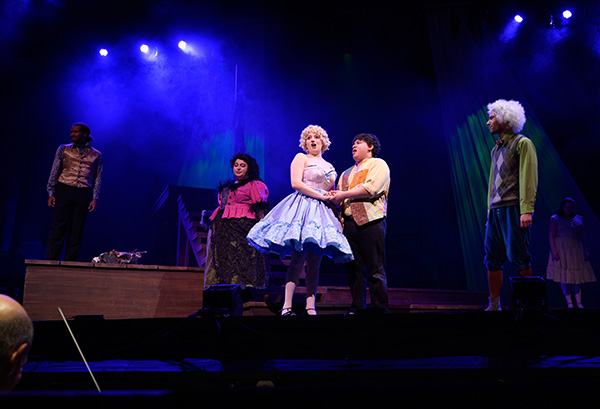
First, the source: the anonymous 1759 novella Candide, or the Optimist. Later owned up to by the French Enlightenment philosopher François-Marie Arouet — better known by his nom de plume, Voltaire — it was a deliciously wicked send-up of the absurd teachings of optimist philosophers like Gottfried Wilhelm Leibniz, who taught that everything was for the best “in this best of all possible worlds.”
Then in 1956 came the first staged version of Candide as a comic opera with a witty libretto by Lillian Hellman and a high-spirited score by Leonard Bernstein — originally conceived by Hellman as a play, but Bernstein’s intentions of making it an operetta won out.
In 1974, after Hellman withdrew from any future revisions, the show was outfitted with a new libretto by Hugh Wheeler that sticks closer to Voltaire’s original. A number of hands got involved in subsequent versions — James Agee, Dorothy Parker, John Latouche, Richard Wilbur, Bernstein himself and his wife Felicia.
Next, a succession of stage directors tweaked the show in various ways, including Harold Prince, whose 1974 “Chelsea” version gutted the Broadway Theater and played the show in the round.
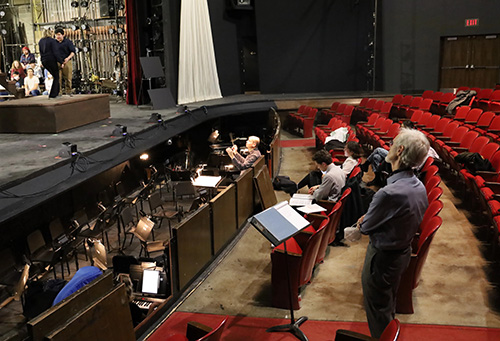
Finally, the top layer: the cast of singing actors both individual and plural and the musicians down below who add flesh and blood brilliance in real time to a fantastical tale. I saw the fourth performance of Candide with the Friday/Sunday cast on March 12 in Hall Auditorium.
The show began with Raphael Jiménez conducting the Oberlin Orchestra in an assured performance of the bright, clever, and tricky overture, the only number in the score that Bernstein orchestrated himself — a piece that plants tunes in the audience’s ear for future reference and has become a standalone on symphony orchestra programs.
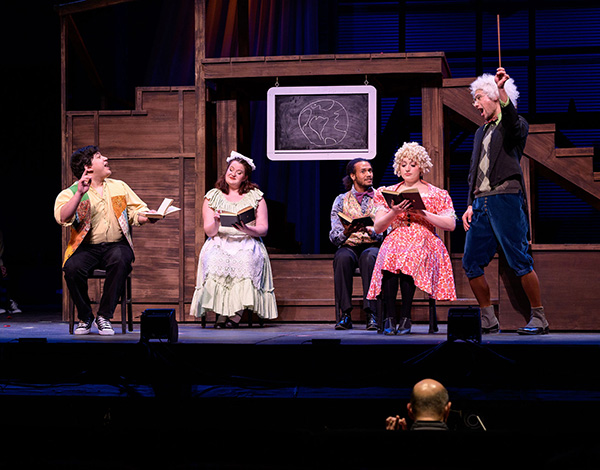

“It would be unfair to tell the story in detail. Unfair?—it would be downright impossible. But loosely, very loosely, it is the story of two young people in love. They are Candide, an innocent who remains an innocent, and Cunegonde, who also remains an innocent but starts out life raped by a regiment of Bulgarian foot soldiers and finds herself with a slightly variant view of chastity.
Dominating this Voltaire-style view of life is Dr. Pangloss, who believes, of course, “that we live in the best of all possible worlds,” and that everything turns out for the best — especially disaster. And disasters abound.
Barnes details just a few of those.
The characters are raped, flogged, shipwrecked, hanged, killed, and one of them—most memorably—loses her left buttock. Voltaire’s world was not an easy one.
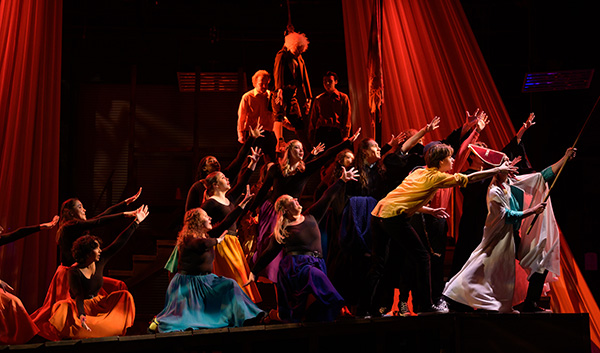
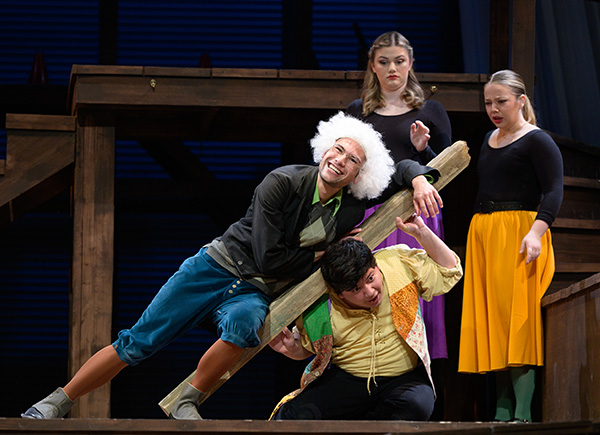
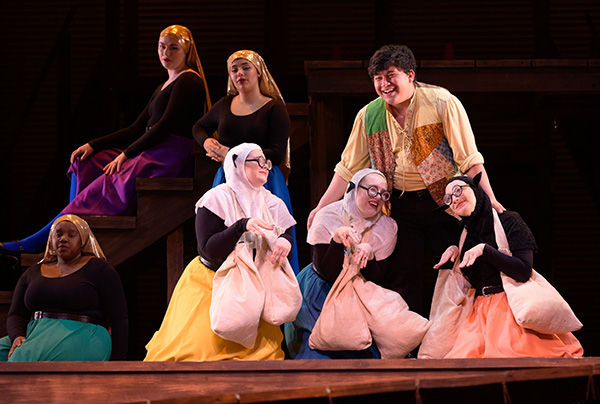
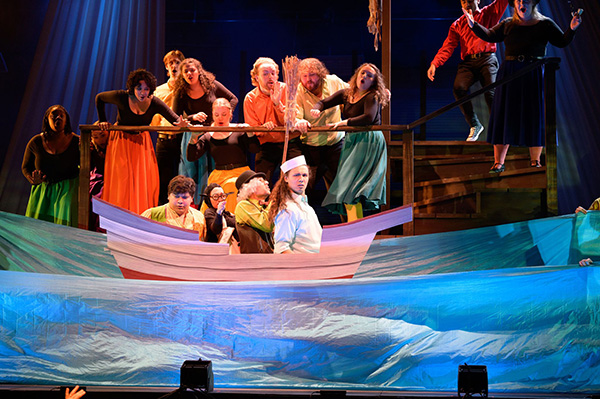
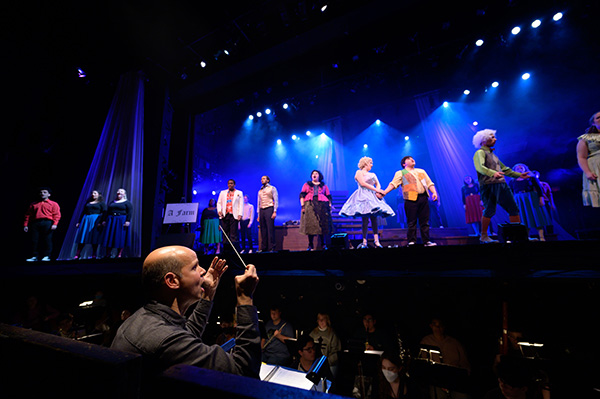

“Auto-da-Fé,” a Sondheim addition, got an appropriately irreligious send-up (“What a day, what a day For an auto-da-fé! What a lovely day for drinking And for watching people fry!”). Candide and Cunégonde were affecting in their duet “You Were Dead, You Know” and Isabella Hoyou brought the steaminess of experience to the Old Lady’s tango, “I Am Easily Assimilated.”
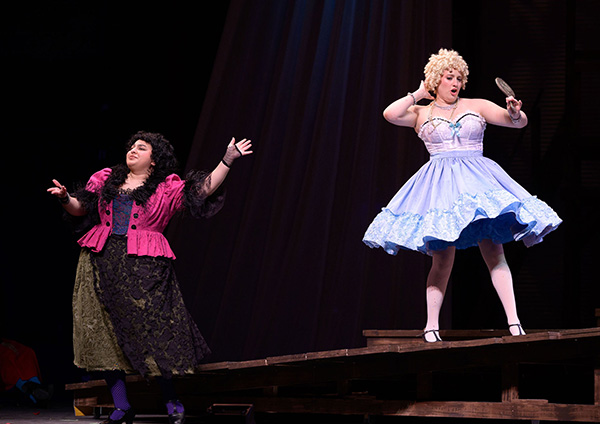
Meanwhile, the busy chorus (prepared by Ben Johns) took on multiple roles: Westphalians, People of Lisbon, Penitents, Priests, Informers, Natives of El Dorado, People of Suriname, Gamblers, Venice Prostitutes, Sea Men — and stagehands, heaving to and rotating Michael Grube’s set platforms between scenes.
Brilliant though it remains after all the versions the show has been through, there are still problems to be solved, some of which date back decades. Mainly, the second act begins to suffer from an “If it’s Tuesday it must be Belgium” syndrome — too much territory to cover, however delightful the sights.
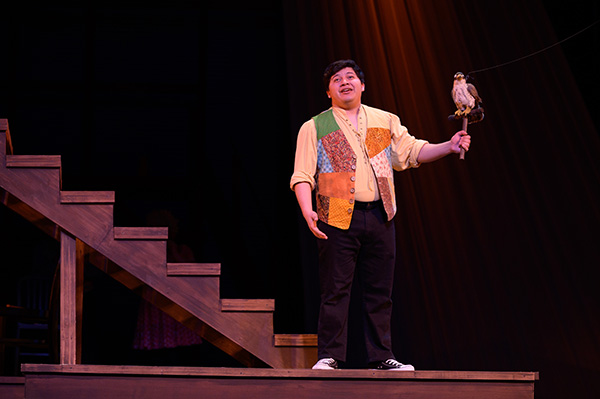
Photos by Yevhen Gulenko.
Published on ClevelandClassical.com March 29, 2023.
Click here for a printable copy of this article




